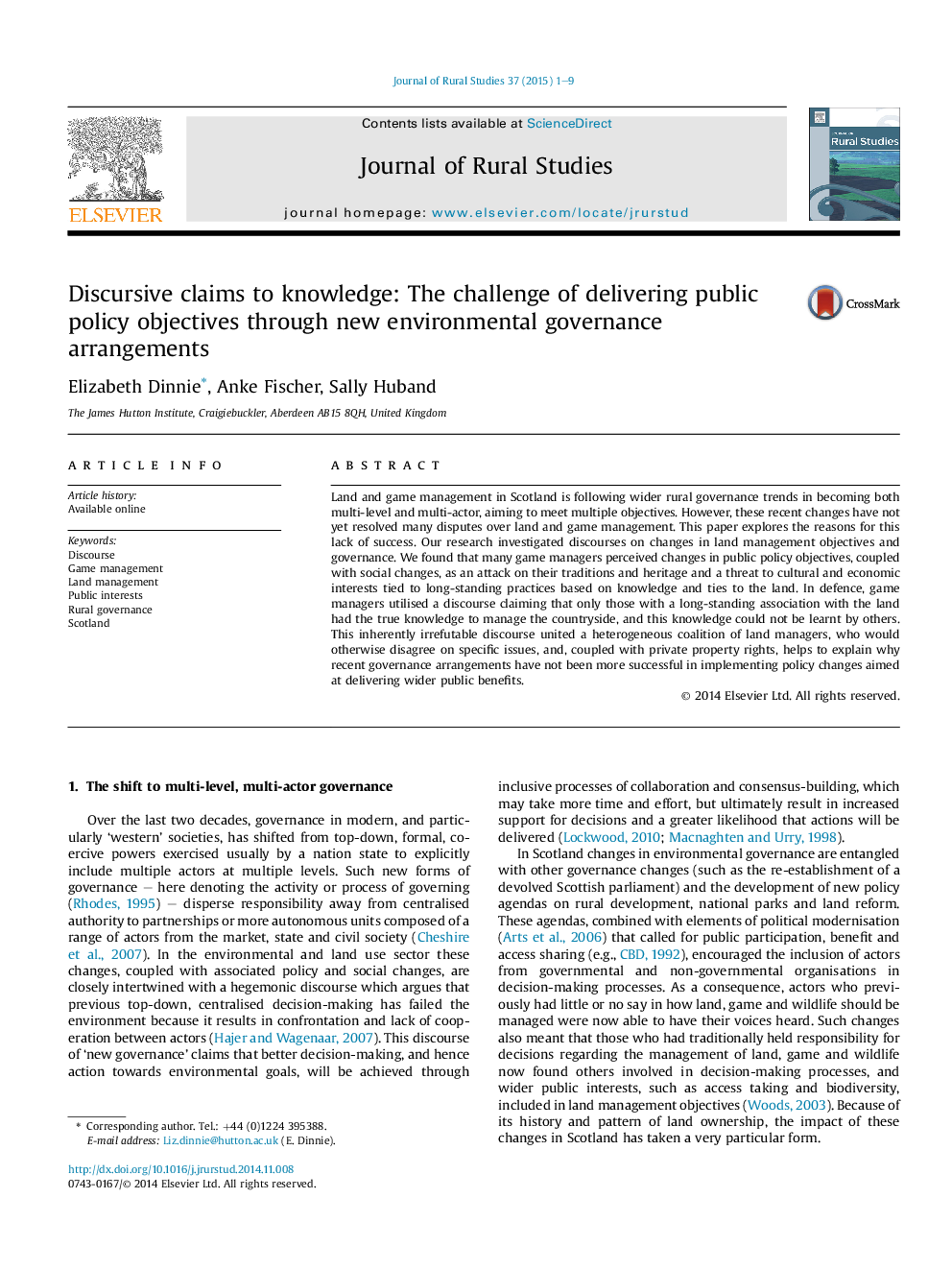| Article ID | Journal | Published Year | Pages | File Type |
|---|---|---|---|---|
| 6545695 | Journal of Rural Studies | 2015 | 9 Pages |
Abstract
Land and game management in Scotland is following wider rural governance trends in becoming both multi-level and multi-actor, aiming to meet multiple objectives. However, these recent changes have not yet resolved many disputes over land and game management. This paper explores the reasons for this lack of success. Our research investigated discourses on changes in land management objectives and governance. We found that many game managers perceived changes in public policy objectives, coupled with social changes, as an attack on their traditions and heritage and a threat to cultural and economic interests tied to long-standing practices based on knowledge and ties to the land. In defence, game managers utilised a discourse claiming that only those with a long-standing association with the land had the true knowledge to manage the countryside, and this knowledge could not be learnt by others. This inherently irrefutable discourse united a heterogeneous coalition of land managers, who would otherwise disagree on specific issues, and, coupled with private property rights, helps to explain why recent governance arrangements have not been more successful in implementing policy changes aimed at delivering wider public benefits.
Related Topics
Life Sciences
Agricultural and Biological Sciences
Forestry
Authors
Elizabeth Dinnie, Anke Fischer, Sally Huband,
